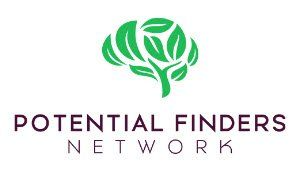
For the Love of Family
Zaria felt the light before she could see it, keeping her eyes closed for as long as she could. Another day. A sigh reverberates through her body.
Rather than rise to face the day, Zee (as she’s known to her friends) wants to stay in bed. In fact, she wants to hide, maybe even disappear.
No. No. She cannot allow herself think about why because the tears will come.
Too late. Her closed eyes fill and the all-too-familiar ache in her heart begins to well up, threatening to spill onto her pillow. Her cat comes over and nuzzles her nose. The floodgates break.
With dread that is palpable, Zee wipes her eyes and begins to pull herself up and push herself out of bed. She knows what’s coming. First, she’ll have to rush to her brother’s house to drop off the book he left at her place last night. She’ll probably skip breakfast like every other day this week. Her stomach moans just thinking about it. Then, she’ll have to run the long list of errands her mother casually texted yesterday without even a “Would you mind?” Then, she’ll be off to the park to pick up her twin nieces. She watches them (for free) three afternoons a week. After that, her older brother “needs” her to take the car in for a wash.
Zee runs through all this in her head and starts to feel hopeless. She’s really missing her new boyfriend, but she has had to cancel their last three dates because her parents, cousin, or siblings have needed her so often.
Now, she finds herself also wondering when she be able to finish her schoolwork? Will she rest again before her next shift at the hospital? She’s so tired of being a nursing assistant, but she can’t seem to finish her nursing degree because of all the demands her family places on her. As the only single one of the adult siblings, it is assumed (as no one ever asks her) that she can handle everyone’s bits and pieces.
Whenever she complains, she is met with eye rolls, pouting, giggles or is ignored altogether.
“Come on, Sis! What else do you have going!? It’s family first, after all, right?”
Zee just doesn’t know how much more she can take.
Does any of this resonate with you? Or do you know someone whose whole life seems dictated by the needs of their family? Has this ever been you? If so, then you are familiar with the “rock and hard place,” the bedraggled Zee faces daily.
As we learned in the main blog, love is complicated. It is so complicated, in fact, we have decided to delve into Greek to give several facets of love particular names in order to begin the process of looking at all its component parts. This week, we are taking a look at: Storge. This is the love of family and the familiar.
Storge can be one of the most grounding, safe, warm, and comforting loves on earth. When all is well, storge will rescue you on the side of the road at 2:00 am without a bat of the eye (or, at least whatever teasing happens is loving and playful). It sits up with you when you have a fever, searches high and low to buy you your favorite color thingamabob, and even helps you move house, drive to the airport, and organize the garage. Storge does not care how tall or wide you are, how much money you make, what color your hair, skin, or teeth are, or what you choose to do with your days. Fully “as is,” you are loved and accepted.
However, as with most things, there can be challenges to this love. The way these usually manifest is when familiar people or family members become overly familiar to the point that common considerations are completely forsaken. When this happens, boundary lines fade (or disappear entirely) and family members begin to take advantage of one another.
It is important to understand this as a corruption of this love and not an inevitable outcome.
You read that right. No. It is not okay for those closest to us to take advantage of us or each other.
This may be shocking to some, so let’s make sure we understand.
First of all, we are all used to the lower impact level of this behavior, such as when Auntie Sue leaves a voicemail telling (not asking) you to pick up her dog, Boris, on Friday afternoon and you are pretty sure she knows you have a college class then. This is inconsiderate and even a bit of entitlement. Generally speaking, drawing a boundary or simply saying “no,” ought to be enough.
However, when things rise to the level of what Zee is experiencing, when one or more family members is draining us of energy with their many demands (especially for things that are clearly their responsibility or no prior agreement or culture (see below) dictates are known). Most often this occurs without compensation of any form. Maybe not even a “Thank you.” Other examples include being asked to compromise important values, go into debt, or when any form of coercion is employed to get you to comply.
As you read that, you may have little trouble agreeing these things are wrong. However, people can be rather crafty and manipulative, and you may not even know what is happening. Unspoken rules of society that we internalize but never quite articulate are not much help either. Think about Zee. Can you imagine how easy it would be for her to justify what is happening? After all, her sister has a lot on her plate. Zee is single, so she “should” be free to watch her nieces anytime, right? Then, of course, her mother gave her life, took care of her for almost twenty years, and now she is older and needs help. It is Zee’s duty to “give back” now, she might tell herself. I mean, she has plenty of time to find a partner. She’s smart, she probably doesn’t need to study too much. Or eat. Or rest…
Are you starting to see the problem?
Clearly, one of the benefits of storge is the lengths to which people will go for each other and the assurance and safety that brings. So, how do we know when “enough is enough?”
Here are a few measuring sticks you can consider.
Resentment – Your Good Friend! It is certainly true we will be called on to go the “extra mile” for family members from time-to-time (or maybe even often during certain seasons). This is good, healthy, and necessary for the flourishing of all. We will often feel inconvenienced or even annoyed at some requests. This is to be expected since we cannot always guess when may be called upon or for how long. However, when we go beyond the typical frustrations and move into resentment, trouble may be brewing.
Resentment is the “blocking” emotion we feel when we strongly resist doing something for someone else and we start to want to pull away from them (or even develop angry or hateful thoughts toward them). Further, it is the result of when our boundaries are (usually repeatedly and/or intensely) crossed, and we are the ones allowing it.
That last bit might be surprising. We tend to think of resentment as being the result when others take advantage of us. Actually, that generally results in anger. When we notice resentment, it is alerting us that we are not guarding our boundaries well.
The Double-Standard Test. This one is somewhat straightforward. If you are unsure if something you are experiencing is a problem, ask yourself, “If someone I cared about felt like I do about this exact same thing, what would I say to them?” If you would tell them, “It’s too much!” or “Draw a boundary!” and you would understand if they were unhappy, then hopefully this knowledge will give you the boost you need to do the same.
First, Do No Harm. Though connecting with and helping family can cause some level of stress, keeping the “First, Do No Harm” motto in mind can help ensure there is balance. One area this thought may need to apply in particular is with cultural issues. A true and deep discussion of culture is beyond the scope of this article, but it is important to acknowledge there are differences.
Those born and raised in the United States who are of European heritage often lean heavily into an individualistic mindset as they grow into adulthood. Family ties may be strong, but each person’s responsibilities tend to focus toward their own needs or the needs of their nuclear family rather than family of origin or extended family. This is, of course, not always the case. However, it is far more often so than with collectivist cultures, where responsibility and attention toward origin and extended family may be significantly higher for one’s entire life.
Rather than a pure focus on ethnic culture, though, understand that if your family fits into a structure where family as a whole is of central importance throughout life, the value of this continued focus may allow for more extensive interactions with family overall. However, all of the above information still holds when the demands are coercive, make you sick, or make you feel diminished, unloved, or abused. It is important to find a way to talk to close and important people in your life and let them know how you are feeling. Many times, people are well-meaning and there is simply no awareness of the strain.
Entire books could be written on this subject, but hopefully, as you continue to ponder storge and all it means, your awareness of your place in your “family/familiar” will increase and if you find yourself struggling with the demands of said family/familiar folks, you will seek help. Finding a counselor who shares your culture or is highly educated/experienced in your culture may be a priority for some. If that is not necessary or available, any well-trained therapist will likely be equipped to help you examine your values and practice new ways of communicating. Please seek help.
The moral of the story is: Make sure to keep washing the robe – and require other close ones to do the same!
Come back next week, when we will explore the next facet of love, namely philia. Don’t miss it!

















